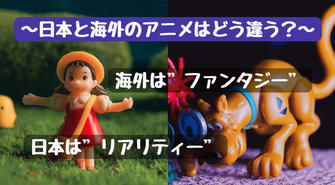Embracing the Art of Slow Living: Lessons from Italy
In today’s fast-paced world, life’s pressures continue to mount. More and more people are reflecting on how to find peace amid the busyness. The concept of “slow living” has thus gained popularity, encouraging people to slow down and savor every moment of life. When it comes to slow living, Italy is undoubtedly a global exemplar. Its rich coffee culture and vibrant family gatherings form a unique lifestyle art.

Italy’s Coffee Culture: Ritual and Social Connection
Italy’s slow living often begins with the essential daily coffee ritual. According to statistics from the International Coffee Organization (2019), Italians rank among the highest coffee consumers in Europe, averaging about three shots of espresso per day. Coffee here is not merely a stimulant but a meaningful ritual.
In Italy, coffee is typically enjoyed quickly while standing at the bar, emphasizing sensory experience and social interaction. Italian cafés, or bars, act as community hubs where neighbors meet and friends gather, creating opportunities to slow down and enjoy brief moments of leisure.
Research shows that people who participate in such social activities report better mental health and significantly lower stress levels.

The Core of Slow Living: Family Gatherings and Shared Time
Beyond coffee, one of the most important slow living practices in Italy is family gatherings. According to the Italian National Institute of Statistics, over 70% of Italian adults engage in family meals at least once a week. These gatherings are more than just eating together; they are vital moments for emotional connection and cultural transmission.
Family gatherings emphasize “sharing food and moments,” allowing members to deepen bonds in a relaxed and joyful atmosphere.
Psychologists point out that regular family social activities effectively alleviate loneliness and improve happiness indices.
This “slowness” is not just about time, but about nurturing deep interpersonal relationships.
Benefits of Slow Living on Physical and Mental Health
The positive effects of slow living on health have been confirmed by numerous scientific studies:
A study published in the Annals of Behavioral Medicine found that individuals who regularly engage in social activities and maintain a slower lifestyle have a 25% lower risk of anxiety and depression.
Slow living also helps reduce cardiovascular disease risks and boosts immune function.
According to Sleep Medicine Reviews, reducing stress and anxiety is key to better sleep, and the habits of slow living support this need.
Slowing down improves sleep quality, enhances emotional well-being, and protects long-term health.

How to Practice the Art of Slow Living in Modern Life?
Here are some practical steps to embrace slow living:
☕ Cherish Your Daily Coffee Moment
Set aside a few minutes each day to enjoy your favorite coffee or tea quietly, appreciating the comfort it brings. Try to savor this “slow” moment at a café or at home, minimizing distractions like phones.
? Schedule Regular Family or Friends Gatherings
Despite a busy schedule, make it a habit to share meals or simple gatherings weekly with loved ones. Sharing food and stories strengthens social bonds and psychological support.
? Slow Down Your Pace and Learn to Pause
Take deep breaths, go for short walks, or do simple stretches during work breaks. Reduce multitasking and focus on the present moment to enhance life quality.
? Cultivate Hobbies and Interests
Whether cooking, gardening, or reading, hobbies naturally slow down life’s rhythm and nourish both body and mind.

Conclusion
Italy’s art of slow living teaches us that happiness comes not only from achievements but also from life’s small pleasures. From a rich shot of espresso to warm family gatherings, slow living tightens human connections and relaxes the mind and body.
Modern individuals who adopt this philosophy and consciously slow their pace can find their own peace and fulfillment amid the hectic rhythm of life.


